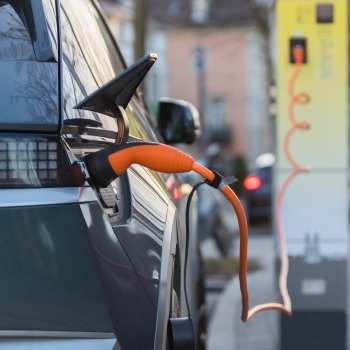
If the IT security of the charging stations continues to be neglected, this could slow down the progress of electric vehicles in society and offer new targets for hackers. Because these are simply other IoT devices connected to the Internet.
The virtual threats of EV charging stations are becoming more and more real. This could delay the spread of electric vehicles and hamper government mandated efforts to combat climate change. The target set by the federal government is, for example, to reduce emissions from traffic by 2030 to 40 percent by 42. Meanwhile, the European Parliament is aiming for a complete ban on combustion engines.
Charging stations are just IIoT devices
But while automakers are ramping up production of new electric vehicles, the industry is not doing enough to address IT security related to new IoT devices. But that can be dangerous, because as soon as drivers charge their vehicles, there is a data connection between the vehicle and the EV hub. These charging stations, in turn, are connected to the internet and, like any other IoT device, are vulnerable to the actions of hackers. If an attacker is now able to gain access to a charging station, this could have serious consequences:
- Risk to user safety: Theoretically, a hacker could access a vehicle's engine controls via a charging station and either compromise security or performance - or disable the vehicle. With an important vehicle like an ambulance, such delays can be life threatening.
- Paralysis of the EV charging network: Hackers could take down a network of charging stations by exploiting a single vulnerability in one of the IoT devices. The consequences range from drivers not being able to charge and use their cars, to lost revenue for the operator, to immeasurable disruption to the road network and power grid.
- Commercial Loss: In addition to shutting down a network of charging stations, hackers could access the operator's software and inject ransomware, with financial and reputational consequences. In addition, many commercial fleets are converting to electric propulsion, but a hacker could paralyze the entire delivery operation from his laptop.
- Payment systems: Hackers could crack the payment system at an EV hub, resulting in theft of money from the driver or network operator.
If it is a target, it will be attacked
The cyber criminals also waste no time increasing the scope and sophistication of their attacks. Check Point Research recently reported a global increase of 59 percent in ransomware attacks alone, while Germany saw a sharp increase in all IT attacks, especially in September, over the past six months. Germany is roughly on par with Europe, with around 1.300 attacks per organization per week peaking at the end of September. As a result, it won't be long before the potential of attacks on EV charging stations will be recognized by the hackers, making it crucial to protect them appropriately.
More at CheckPoint.com
About check point Check Point Software Technologies GmbH (www.checkpoint.com/de) is a leading provider of cybersecurity solutions for public administrations and companies worldwide. The solutions protect customers from cyberattacks with an industry leading detection rate for malware, ransomware and other types of attacks. Check Point offers a multi-level security architecture that protects company information in cloud environments, networks and on mobile devices, as well as the most comprehensive and intuitive “one point of control” security management system. Check Point protects over 100.000 businesses of all sizes.
